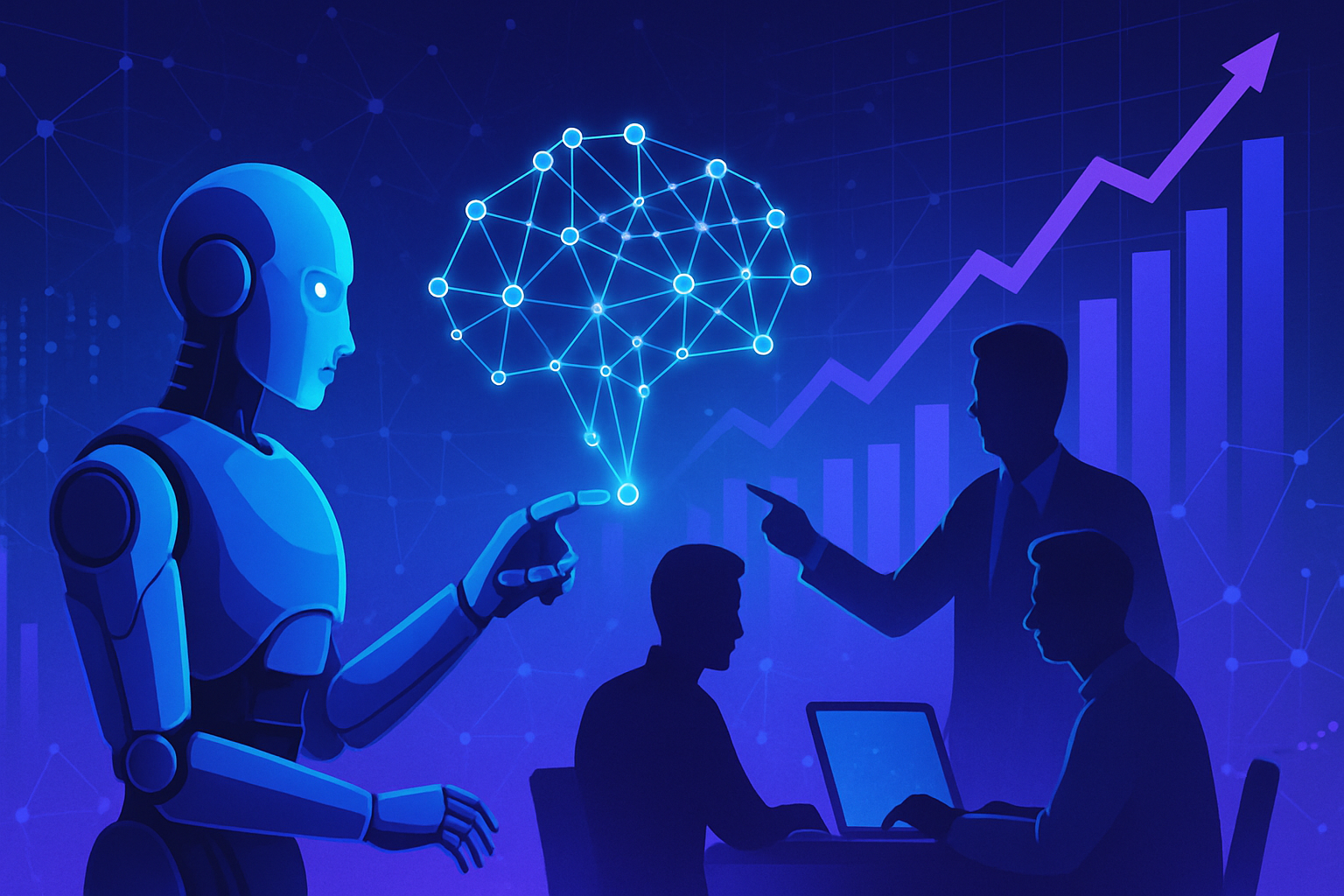Artificial intelligence amazes and questions. Many envision it as imposing a radical upheaval in the consulting sector, leading to unprecedented rivalry with iconic companies such as McKinsey. An incredible growth potential is emerging for AI players capable of providing innovative solutions to neglected markets. Results-based pricing strategies are becoming prevalent, challenging the old models of traditional firms. The rise of AI solutions also highlights the limitations of large consulting firms, which may struggle to adapt their practices in the face of this rapid transformation.
The Rise of Artificial Intelligence in the Services Sector
Consulting and service firms, such as McKinsey and Accenture, are facing a radical transformation due to the rise of artificial intelligence. This phenomenon is asserting itself in sectors traditionally dominated by human labor, such as law, accounting, and consulting. AI enables the automation of many repetitive tasks and generates results at low cost. Companies that adopt an AI-driven approach position themselves as formidable competitors to these giants.
A New Economic Approach
The traditional business model of consulting, based on hourly fees, is becoming obsolete. Service firms will need to evolve towards a results-based pricing model, rather than one based on time spent. The growing use of AI provides new opportunities to achieve profit margins comparable to those of technology companies. AI-focused firms can target gross margins of 80 to 90%, challenging the established model of traditional firms.
The Potential Disruption by Agile Startups
Startups like Gruve, recently supported by investors, illustrate this trend. Founded by an experienced team that has already succeeded in two companies, Gruve has managed to combine organic growth and acquisition. Their approach, which combines human expertise with the power of AI, has allowed them to rapidly increase their revenues while maintaining high margins.
These companies innovate in neglected markets, that is, small businesses that cannot afford to hire specialists. Offering services like security management or customer support in software form allows them to reach these market segments. Targeting clients without the necessary budgets constitutes a winning strategy to bypass industry giants.
Innovation Through AI in Large Companies
Large companies like McKinsey cannot ignore the advancements in AI. The transformation towards a new reality requires identifying how to integrate these innovations without compromising their current practices. Traditional companies will hesitate to abandon their proven business models, even in the face of inevitable change. Paradoxically, this fear of change could prove costly.
Entrepreneurship in the Face of AI
New entrants in the technology field must establish unique go-to-market strategies. Not directly competing with dominant companies such as Accenture represents a wise approach. By targeting fragmented markets, these new entrepreneurs can expect success without the heavy competitive burden of established companies.
Jobs and Future Prospects
The impact of AI on employment concerns many sectors. Job losses will occur in the short term, but human adaptability remains a major asset. History shows that every technological advancement, such as the advent of processing software or transportation services, has ultimately led to market expansion. AI will emerge as the catalyst for this evolution.
Investments in AI “Co-Pilots”
Mayfield, for example, has allocated $100 million to support projects around AI co-pilots, which collaborate with humans for a common goal. This trend highlights the desire to integrate AI as a complement to human capabilities, rather than as a substitute. Investing in these technologies can offer substantial return prospects.
Conclusion of the Turbulent Market
Assessing market trends in this new era of AI requires a nuanced approach, as every investment decision must be guided by a long-term vision. Market players must exercise diligence to identify opportunities while avoiding pitfalls. Companies need to navigate this new ecosystem with caution and determination.
Frequently Asked Questions About Artificial Intelligence and McKinsey
Why is artificial intelligence considered a threat to companies like McKinsey?
Artificial intelligence has the potential to transform service sectors by reducing costs and improving efficiency. AI-based models can provide faster and cheaper solutions than the traditional services offered by companies like McKinsey.
What areas could AI surpass the services offered by McKinsey?
Fields such as data processing, predictive analytics, and risk management are areas where AI can excel due to its ability to quickly process large amounts of information, which is not always possible for human consultants.
Why should we expect a gradual transition rather than an immediate replacement of McKinsey by AI?
The transition will be gradual because McKinsey and other established firms have strong networks, a reputation built on trust, and well-established client relationships. These elements make disruption by AI more complex than anticipated.
How could AI complement rather than replace McKinsey’s services in the short term?
In the short term, AI can act as a complementary tool for consultants by helping automate repetitive tasks and providing advanced analyses, allowing humans to focus on strategic and decision-making tasks.
What are the limitations of artificial intelligence compared to companies like McKinsey?
Limitations include contextual understanding, empathy, and the ability to handle complex situations based on human relationships, skills that human consultants possess and are difficult to replicate by AI systems.
What role could small businesses play as AI emerges in the service market?
Small businesses can leverage low-cost AI solutions to address specific needs, targeting markets neglected by large firms like McKinsey, by providing services tailored to customer segments without access to costly expertise.
What impact will the evolution of AI have on the consulting sector in general?
The evolution of AI is expected to trigger a restructuring of the sector, leading to lower costs and opening opportunities for business models based on results rather than hourly fees, which could redefine client expectations of consultants.






